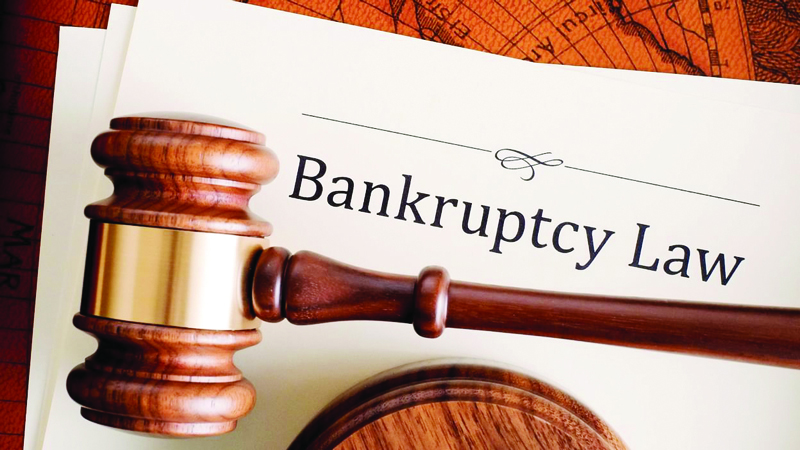
By Nawara Fattahova
KUWAIT: Kuwait's new bankruptcy law organizes the issue of bankruptcy and corporate debt alongside globally competitive economies. The aim is to provide a legal foundation for modernizing the economy, attracting more foreign investment and growing the private sector. But what does the new law say exactly? To answer this question, Kuwait Times spoke with lawyers and attended seminars to learn the specific implications of the new law.
No jail time for debtors
Firstly, the new bankruptcy law no. 71/2020 does away with jail sentences for debtors. This has long been a contentious issue in Kuwait and the region. Small and medium business owners often face failure and jail time if their business collapses. This has arguably been a key factor in limiting the growth of Kuwait's private sector.
The new bankruptcy law has removed arrest or imprisonment as penalties for debtors and those filing for bankruptcy. In an official statement, the ministry of commerce in October noted that the abolition of imprisonment for civil debts came after extensive studies. The ministry explained the harm of imprisonment was much greater than its use as punishment, especially since sentences were typically for short periods and that imprisonment of the debtor disrupts their ability to repay the debt. Helping businesses manage and emerge from failure is a modern approach that focuses on the economic implications of the business.
Specific mechanisms
The new law calls for the establishment of a specialized bankruptcy court, a mechanism for preventive settlement and financial restructuring to help businesses avoid insolvency, and working with creditors to establish arrangements satisfying all parties.
The new law establishes guidelines for the implementation of bankruptcy trustees who can oversee a bankruptcy filing, specialized bankruptcy investigators who will work with the bankruptcy court and trustees to ensure the rights of all parties involved and prevent abuse of the system. A separate bankruptcy commission established under the ministry of commerce and industry will also be set up to oversee bankruptcy filings of state-owned entities.
"The law streamlines and modernizes bankruptcy provisions," noted Philip Kotsis, Partner & Co-Head of the Kuwait Office at Al Tamimi & Co, who was speaking during a seminar on the new law organized by the American Business Council-AmCham Kuwait in collaboration with the German Business Council Kuwait and Al Tamimi & Company.
"There is a clear desire to see companies attempt to emerge from these distressed situations, and there is an attempt to de-stigmatize business failure. This will hopefully have a positive impact on various aspects of business culture in Kuwait, and will help investors outside Kuwait to see that a structure has been put in place, which may attract more foreign investors," Kotsis said.
Enforceability of court judgments and actions to be taken - including commencing liquidation procedures, notifying concerned parties, disclosing decisions on the Kuwait stock exchange (if the company is listed) and instructing the debtor to disclose the bankruptcy publicly - are all governed by the new law.
Attorney Meshari Al-Ayada noted that the new bankruptcy law filled in important gaps in the old commercial law, especially with regards to fraud, embezzlement and other financial misdeeds. Penalties, including sentences of up to five years imprisonment, remain for those convicted of financial fraud or other financial crimes.
At the same time, the law provides a way forward for debtors seeking to get back on their feet financially. The law allows debtors to launch new projects, obtain financing, continue with employment, serve in public life and even run for elections. "Establishing a special bankruptcy court will add expertise regarding bankruptcy disputes in favor of those working with this law. In addition, the law made the process of restructuring shorter and faster," Ayada told Kuwait Times.
Wrinkles remain
However, some wrinkles remain that may take time to iron out. "The new law limits supervision of bankruptcy to account auditors registered with the Capital Markets Authority only. I consider this a prejudice against small companies, as [most of] the account auditors registered with the Capital Markets Authority deal with big companies for large sums that small companies can't afford. This will be clear after the law is applied," Ayada explained.
Published in the official gazette - Kuwait Al Youm - on October 25, the new bankruptcy law is now active, and the court that will begin examining bankruptcy proceedings is in the early stages of establishment. The 308-article law will place Kuwait among leading countries economically in the upcoming period, said the ministry.










